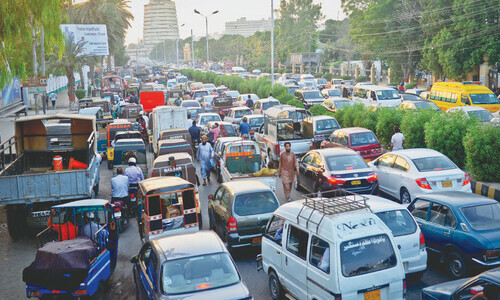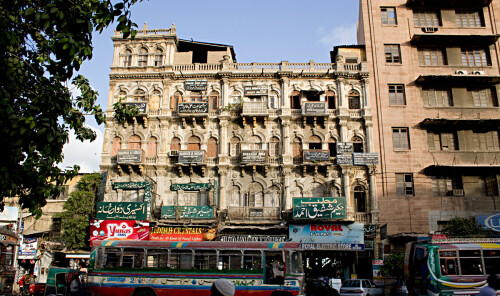KARACHI: A report in this newspaper on Tuesday, quoting the Met department, said a week-long heatwave is expected and day temperature may rise to 48 degrees Centigrade in some areas of Sindh. This should awaken the authorities — if they have not already made arrangements to make citizens’ lives less challenging — because of multiple reasons. The first is: it’s the last week of the holy month of Ramazan when most of them are fasting from dawn till dusk. Given the hide and seek that electricity plays with their lives, and the fact that during this time people usually step out of their houses for shopping, the scorching heat can cause severe damage. No government deserves to be called a government unless it contains, and shows, compassion for the people it’s been elected to govern.
Then there is the vital issue of climate change. Pakistanis in general have yet to make it a subject worth mulling over — they have other topics to thrash out. Karachi’s traffic issue is a major concern on that count. A serious study is required to ascertain how many registered and unregistered vehicles, many of them smoke-emitting, move on the city roads on a daily basis. One suspects that the number is huge, commensurate with Karachi’s population that’s bursting at the seams.
In 2015, more than 100 lives were lost to the deadly wave in Karachi. In 2018, the city was again in its grip with debilitating effects. In the last couple of years, in 2020 and 2021, the coronavirus pandemic had made people wary of coming out of their comfort zones, so the damage was not as harsh; but the weather did not relent.
The thing to remember is that Karachi has always been a ‘hot’ city. Any research on its documented history, let’s say beginning from two centuries back, will bring to light that from April to September the sun mightily beats down on the town. The British were intelligent enough to realise this environmental aspect, therefore the buildings that they constructed in the region were made in such a way (having high ceilings, for example) that they allowed citizens to ‘beat the heat’. They also planted trees and built parks.
In the post-independence period, the weather conditions have been aggravated by climate change and a burgeoning population. This is where the government’s proactive role comes in. Can one use the word ‘proactive’ with a fair degree of pride when it comes to those whose duty it is to look after their countrymen? Not sure.
Certain measures can do the people a world of good: an uninterrupted supply of electricity — if there’s a disruption for whatever reason, fixing it quickly; drinking water facilities at important points on and around the roads that are frequently used by office-goers, labourers, salesmen, shopkeepers etc; and hospitals on red alert to deal with, God forbid, emergency cases.
Not an impossible task. Or is it?
Published in Dawn, April 27th, 2022














































Dear visitor, the comments section is undergoing an overhaul and will return soon.